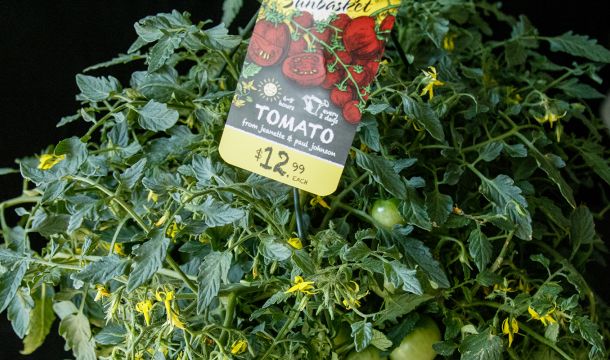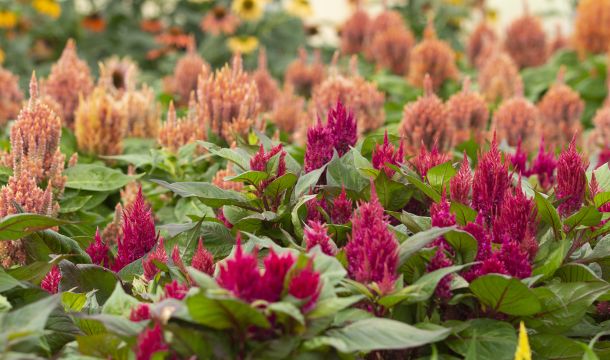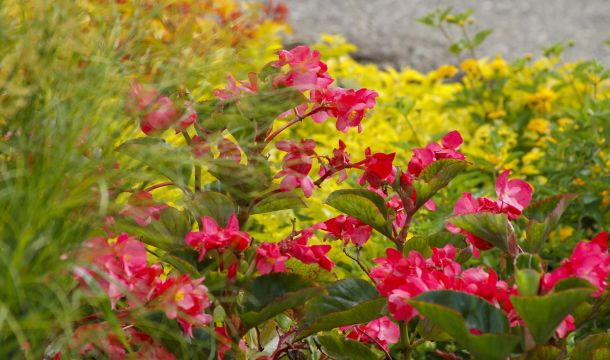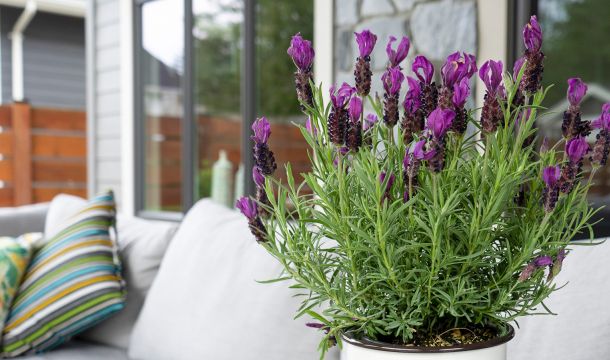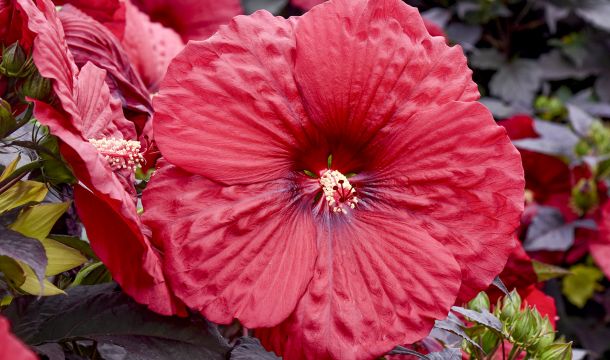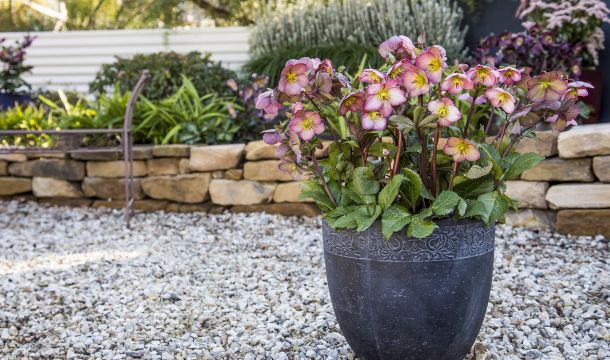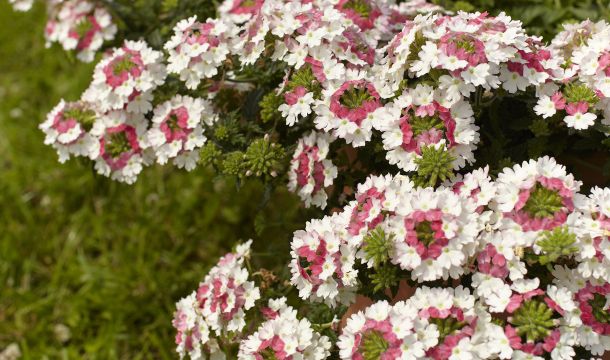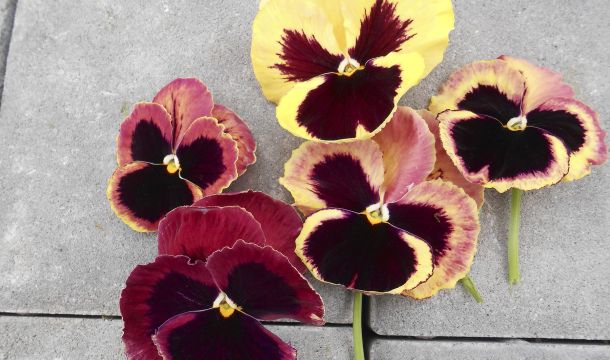The Basil Tipping Point

It makes sense to expand basil choices beyond the basil in your program. I’m talking about the 800-pound herbal gorilla in the category, Genovese-style basil. Two additional companions earning 10% of that revenue still results in significant profits.
Before expanding, though, it’s important to protect what you’ve got. This is the big news in basil: new downy mildew resistant (DMR) varieties with taste-like-Genovese qualities. DMR isn’t new to basil. Several cultivars sell hard on this feature but the knocks in the past were the sacrifices made to taste and texture. Growers stuck with Genovese as the gold standard despite its growing problems.
Rutgers University has a deep background into agriculture, so their focus is on taste, reliability and production. This series has only four varieties: Devotion (Genovese), Thunderstruck (lettuce), and Obsession (sweet basil for pots) and Passion (sweet basil for field).
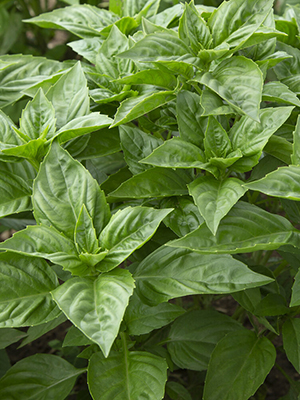 |
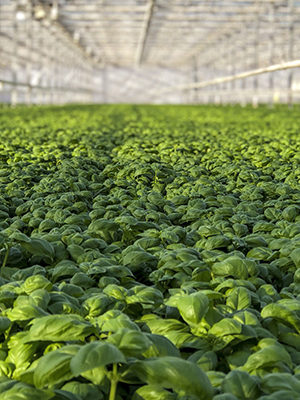 |
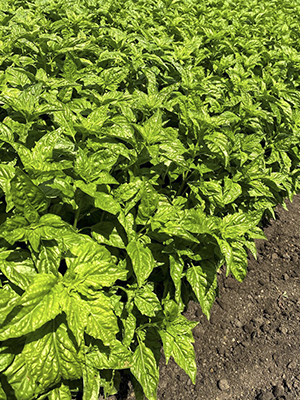 |
| Rutgers 'Obsession' |
Rutgers 'Devotion' | Rutgers 'Thunderstruck' |
DMR Is the New Hotness
The past few years yielded different results. When I asked my circle of contacts for basil recommendations, I got a boom back for two new DMR series: Rutgers and Prospera.
- From an Ohio finishing nursery: ”The lines out of Rutgers are PHENOMENAL! We planted some, never a DM problem all summer. We water when it is convenient, not when it is best timed. They still did awesome. The flavor is still there as well.”
- From a Connecticut finishing nursery: “Prospera Compact has a nice tight form (great for our smaller pots) and good flavor. The red is a good sub for the older Red Rubin, Amethyst, and Crimson King.”
- From a California plug producer: “It’s just so much more reliable to produce these (cultivars). We are encouraging customers to migrate to these varieties whenever possible.”
More than facts, the force of emotion struck me. Genovese has become a grind to some growers because the cultivar is vulnerable to downy mildew, and the losses go beyond the peat and pots tossed in the trash. There’s the sting of the labor cleaning out the houses in May, when you, your family, and your staff have much better things to do.
Organic operations tend to adopt DMR varieties early because they cannot turn to chemistry to straighten out problems. They need the seed to do the heavy lifting; however, conventional operations are also turning to Rutgers and Prospera. The seed cost is not much higher than that of generic. Chemistry and its labor carries its own cost load, in addition to the losses mentioned above. Operations that pinch the pennies know that a good seed is the cheapest preventative you can apply.
The Prospera series is divided into two parts. Current gen DMR is just Prospera (compact, red, Thai). The next gen material belongs to the Active subseries (Aya, Lihi, Nova and Mia). Lihi is the compact one, and Aya is semi-compact.
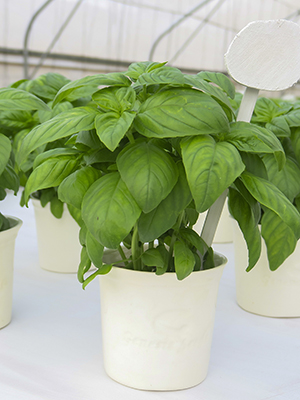 |
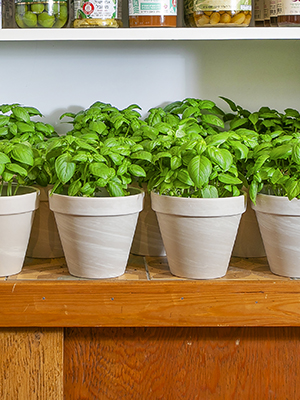 |
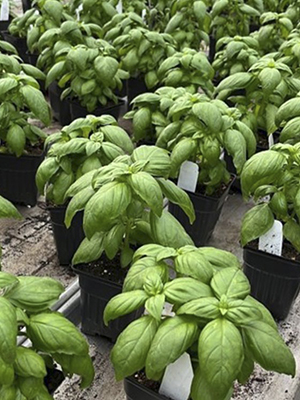 |
| Prospera 'Compact' |
Prospera Active 'Aya' | Prospera Active 'Lihi' |
Rutgers and Prospera
If you can taste the difference between Genovese and sweet basil, look at the Rutgers series. Named after the school, Rutgers went through a taste-testing lab on campus as part of its development cycle. Four cultivars ran the gauntlet successfully, but the two most popular in our end of the industry are Rutgers Obsession (Genovese) and Rutgers Devotion (sweet basil). These are taller basils, with a greater internodal space between the leaves, topping out at about 26 inches. This style of basil favors field grown, clamshells, sleeved products, and produce that is sprig-oriented in its sales.
If you sell your basil in pots, especially the small ones, bring in some Prospera for testing. This series is divided into two parts. Current gen DMR is just Prospera (Compact, Red, Thai). The cultivar that gets all the talk is Prospera Compact, a low 10-inch variety with a shorter internodal distance. If your customers buy their basil with their eyes, the tightly bunching leaves make for a bushier looking plant; and it tastes just like Genovese.
Both breeding teams talk about the ever-changing nature of downy mildew. Rutgers is armored up with a wide range of strains from around the world, so the disease resistance is very strong. Prospera’s response is the new-to-market Active subseries with their next gen DMR. Aya, Lihi, Nova and Mia are four cultivars in the Genovese style. Lihi is the compact one, and Aya is semi-compact.
Trial them both. The two series track closely in their behavior, so your specific production style will govern the one you favor.
When expanding the Basil program, turn to the Thai varieties first. They get the next best sales. Afterwards, field a Greek style and a Red Basil. Those two are roughly equivalent. Scented basils like Lemon or Cinnamon follow thereafter.
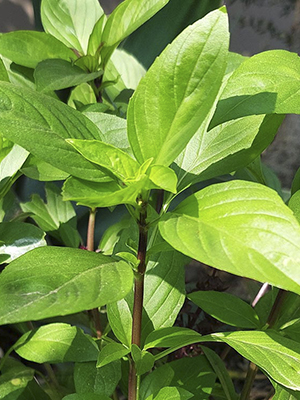 |
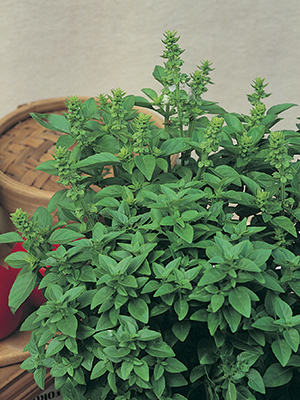 |
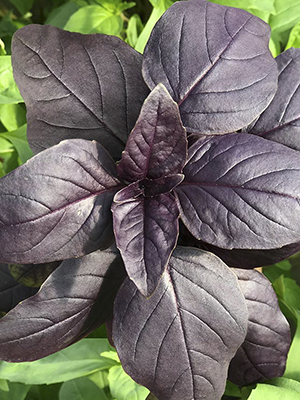 |
| Prospera 'Thai-Thai' | 'Spicy Globe' | Prospera 'Red' |
Expanding Beyond Genovese
The next basil category to consider includes the Asian varieties like Everleaf Thai Towers, Siam Queen, and Prospera Thai-Thai. Asian basils have more licorice notes that are favored in cuisines surrounding the Pacific and Indian oceans. They have the strongest sales after Genovese.
Beyond Genovese and Asian, roughly neck and neck are the red basils and the Greek basils. Reds (and purples) like Red Rubin, Purple Ball, and Prospera Red have a sharp flavor and a big leaf, not unlike radicchio in a salad. Red basil is often included in mixes like Try Basil SimplyHerbs (a pelleted product of three basils), or paired off with classic greens to create a sweet and savory basil mix.
Greek basils like Spicy Globe and Bonsai get close to the ornamental side. With tiny leaves and stiff branches, these basils groom well. They are the choice for basil topiaries, and varieties like Basil Boxwood create little foundation plantings for toy railroads and fairy gardens.
A special mention should go out to Everleaf Emerald Tower and Everleaf Thai Tower. These twin Towers play the columnar shape hard, making distinctive centerpieces in display yards. I also have to call out Aristotle, a basil with frilly leaves. I consider it a novelty, but its sales often run as high as the Thai-styles themselves. There is a fan base of Aristotelians out there.
Basils have three fun varieties to add flavor to the basil program. A surprising fanbase exists for Aristotle, whose sales can rival the Thai. The smallest Greek on the market is 'Bonsai,' whose small shape is perfectly happy to live its full life on a windowsill. Finally, there are the amazing twin towers of Everleaf 'Emerald Towers' and 'Thai Towers'. These are two extremely vertical basils for the ornamental market.
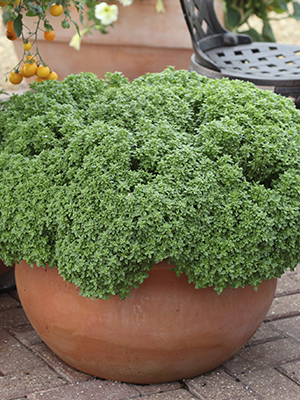 |
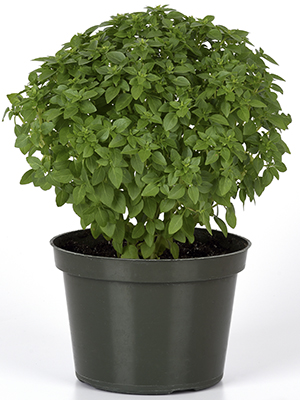 |
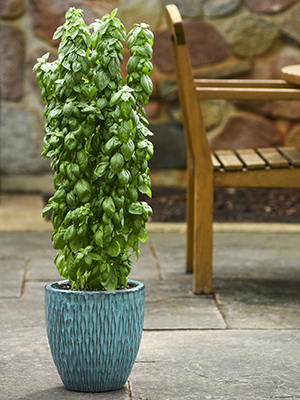 |
| Aristotle | 'Bonsai' | Everleaf 'Emerald Towers' |
Popular Articles
